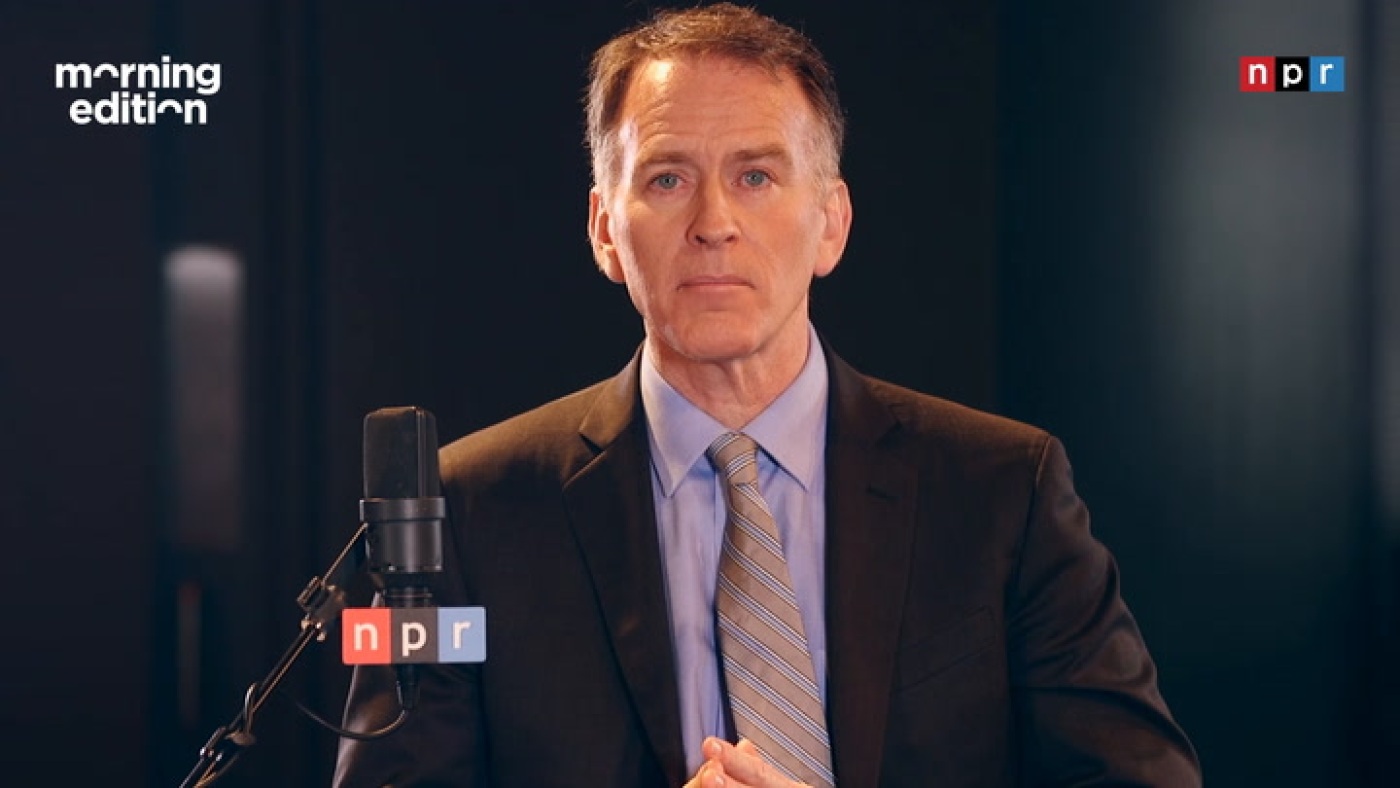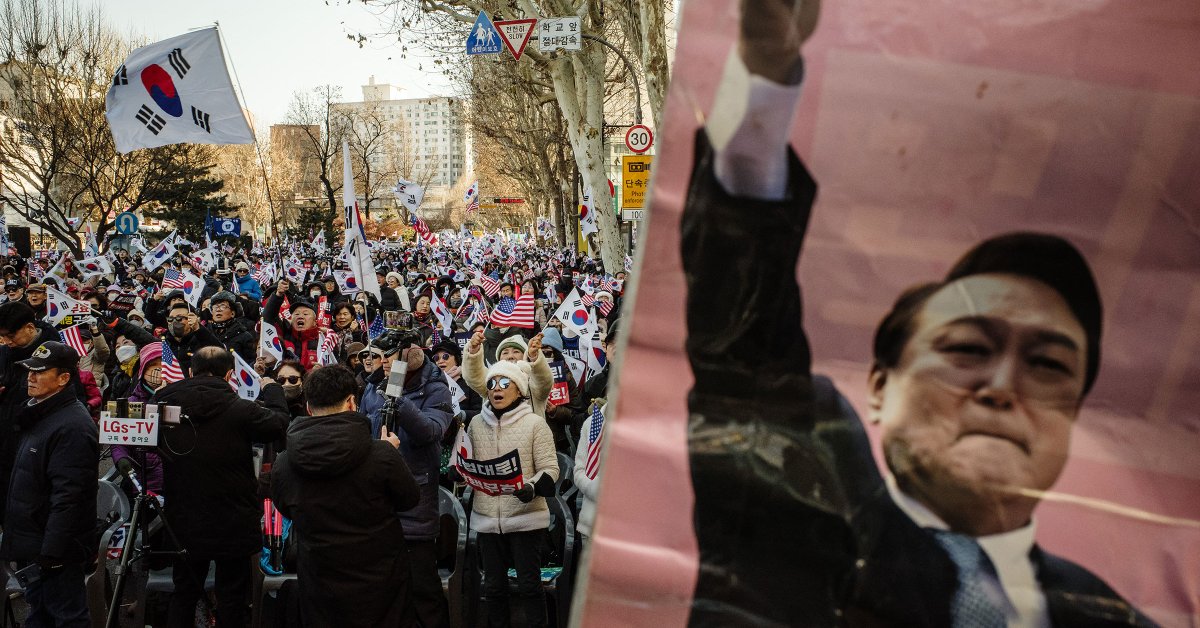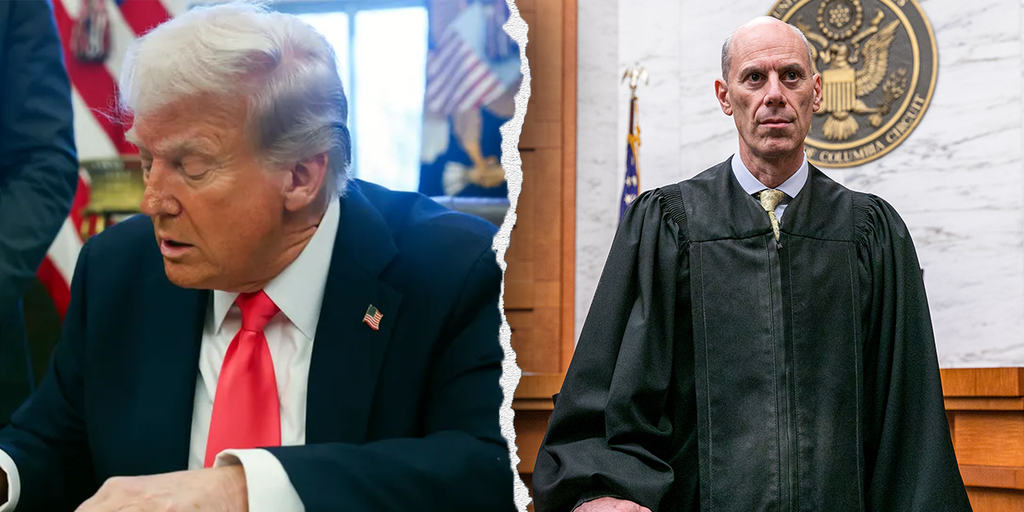Caught in the System: Native-Born American Detained by ICE Despite Citizenship Proof
Politics
2025-04-19 18:35:48Content

In a troubling case of potential legal misunderstanding, Juan Carlos Lopez Gomez found himself detained in Florida after allegations of being in the country illegally. The situation took a dramatic turn when his mother intervened, presenting his birth certificate to a judge who subsequently dismissed the charges against him.
Despite the judicial dismissal, immigration authorities continued to hold Lopez Gomez, raising serious questions about due process and potential bureaucratic overreach. The incident highlights the complex challenges faced by individuals caught in the intersection of local law enforcement and federal immigration policies.
Lopez Gomez's mother's swift action in providing his birth certificate demonstrates the critical importance of documentation in resolving such legal complications. Her determination to prove her son's legal status underscores the emotional and legal challenges faced by families navigating immigration-related challenges.
The case serves as a stark reminder of the potential for administrative errors and the critical need for thorough verification of an individual's legal status before detention and potential deportation proceedings.
Citizenship Controversy: When Legal Rights Collide with Immigration Enforcement
In the complex landscape of immigration law, individual stories often reveal the intricate challenges faced by families navigating a system fraught with bureaucratic complexities and potential human rights concerns. The case of Juan Carlos Lopez Gomez represents a profound intersection of legal documentation, personal identity, and systemic enforcement practices that challenge our understanding of citizenship and due process.Unraveling the Thin Line Between Legal Protections and Enforcement Overreach
The Arrest and Immediate Challenges
The incident surrounding Juan Carlos Lopez Gomez's arrest in Florida exposes critical vulnerabilities within the immigration enforcement system. Despite possessing irrefutable proof of his birthright citizenship - a birth certificate presented directly to a judicial authority - Lopez Gomez found himself entangled in a legal nightmare that challenges fundamental principles of individual rights and judicial interpretation. Judicial proceedings often rely on meticulous documentation, yet in this instance, even a direct presentation of official documentation failed to immediately prevent potential deportation proceedings. The case highlights the precarious position of individuals who must continuously prove their legal status, even when overwhelming evidence supports their claims.Systemic Implications of Documentation Challenges
The broader context of immigration enforcement reveals systematic challenges that disproportionately impact individuals with Hispanic surnames or perceived immigrant backgrounds. Lopez Gomez's experience underscores a troubling pattern where legal citizens can find themselves subjected to prolonged scrutiny and potential detention based on superficial assumptions about nationality and citizenship. Legal experts argue that such incidents represent more than isolated administrative errors; they reflect deeper structural issues within immigration enforcement mechanisms. The presumption of illegality becomes a dangerous precedent that undermines constitutional protections and individual rights.Navigating Bureaucratic Complexities
The intricate dance between local law enforcement, judicial systems, and federal immigration authorities creates a labyrinthine environment where individual rights can be easily compromised. Lopez Gomez's case demonstrates how administrative processes can inadvertently become mechanisms of potential discrimination, despite existing legal safeguards. Families facing similar challenges must often mobilize significant personal and financial resources to challenge potentially unlawful detentions. The emotional and psychological toll of such experiences extends far beyond the immediate legal proceedings, impacting entire communities and challenging fundamental notions of justice and belonging.Legal Recourse and Systemic Accountability
Incidents like Lopez Gomez's arrest necessitate robust legal mechanisms for accountability and redress. Civil rights organizations increasingly highlight the need for comprehensive reforms that protect individuals from arbitrary enforcement actions and ensure meaningful judicial oversight. The intersection of immigration law, constitutional rights, and enforcement practices demands continuous scrutiny and proactive policy interventions. Each case represents an opportunity to refine systemic approaches and reinforce principles of equal protection under the law.Broader Social and Political Ramifications
Beyond individual narratives, such cases illuminate the complex social dynamics surrounding immigration, citizenship, and identity in contemporary society. They challenge prevailing narratives and expose the nuanced realities faced by individuals navigating increasingly complex legal and social landscapes. The Lopez Gomez incident serves as a powerful reminder of the ongoing need for vigilance, compassion, and systematic reform in immigration enforcement practices. It underscores the critical importance of preserving individual rights while maintaining effective border security and legal frameworks.RELATED NEWS
Politics

Economic Clash: Trump's Divided Team Struggles to Rein in Tariff Ambitions
2025-04-11 09:00:36
Politics

Pop Star Perks: Rachel Reeves Reveals Backstage Pass to Sabrina Carpenter Concert
2025-03-23 10:38:08






